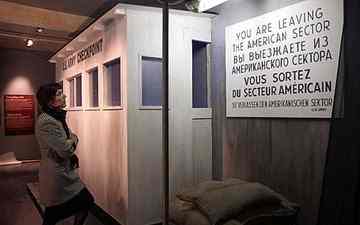The international conference on “National History Museums in South-East Europe : Learning History, building shared memories” will be held on 18-19 October 2010 in Thessaloniki, Greece. The event is organized by the UNESCO Venice Office in co-operation with the Hellenic National Commission for UNESCO, with the support of the Archeological Museum of Thessaloniki, the Museum of Byzantine Culture in Thessaloniki, the ICOM Regional Alliance for South-East Europe, and the UNESCO Chair in intercultural policy (Thessaloniki).
 Conceived as a contribution to the celebrations of the “International Year for the Rapprochement of Cultures” (2010), the conference will gather experts, history museums directors, curators and historians from the SEE region and beyond, so as to hold a comparative exchange of views on the role and function of History Museums today.
Conceived as a contribution to the celebrations of the “International Year for the Rapprochement of Cultures” (2010), the conference will gather experts, history museums directors, curators and historians from the SEE region and beyond, so as to hold a comparative exchange of views on the role and function of History Museums today.
Museum directors and experts from Albania, Bulgaria, Bosnia and Herzegovina, Croatia, Cyprus, The former Yugoslav Republic of Macedonia, Greece, Moldova, Montenegro, Romania, Serbia, Slovenia and Turkey will participate in the conference. Will also participate directors and high level experts from other prominent European museums (Belgium, France, Italy, Germany), professional institutions or international organizations to allow for exchange of an ideas and best practices.
The meeting will discuss the function of history museums in SEE as innovative educational and pedagogical tools, their role in fostering a critical and unbiased understanding of national and regional history, reflect on the notion of “shared memories” and “shared pasts”, propose new interdisciplinary perspectives European history.
Among the four major topics to be addressed will be the role of history museums in fostering intercultural dialogue. History Museums can foster a broader understanding of the history of nations and its peoples, create opportunities for learning, and stimulate critical thinking about a country’s past. This round-table will therefore address the following questions: how can a history museum foster mutual understanding and appreciation of the history of a country in a regional and international context? How can a history museums become a forum for critical discussion and understanding, for reconciling shared (or supposedly shared) history with the particular histories of the social groups that comprise a society, for encouraging critical thinking and discussing the diversity of origins and the plurality of memories of a country?
Among the expected results to arise from the conference are : allowing for a comparative exchange of views on the role of National History Museums today, presenting recommendations on strategies, methods and policies conducive to the reform, transformation and development of history museums; fostering a better awareness, comprehension and knowledge of the educational and civic role of history national museums in promoting a reflexive and critical understanding of History, as well as intercultural dialogue; identifying new forms of institutional cooperation, exchanges and partnerships between museums within the region and beyond; and identifying follow-up actions and flagship programmes activities to be supported and promoted in SEE.
Source: UNESCO [October 07, 2010]